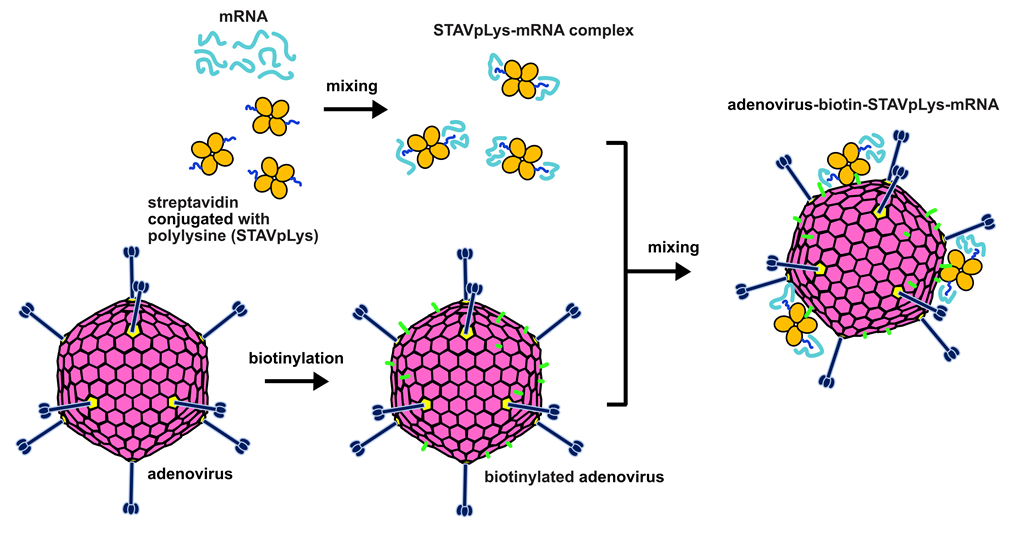Molecular therapies exploiting mRNA vectors embody enormous potential, as evidenced by the utility of this technology for the context of the COVID-19 pandemic. None-the-less, broad implementation of these promising strategies has been restricted by the limited repertoires of delivery vehicles capable of mRNA transport. On this basis, we explored a strategy based on exploiting the well characterized entry biology of adenovirus. To this end, we studied an adenovirus-polylysine (AdpL) that embodied “piggyback” transport of the mRNA on the capsid exterior of adenovirus. We hypothesized that the efficient steps of Ad binding, receptor-mediated entry, and capsid-mediated endosome escape could provide an effective pathway for transport of mRNA to the cellular cytosol for transgene expression. Our studies confirmed that AdpL could mediate effective gene transfer of mRNA vectors in vitro and in vivo. Facets of this method may offer key utilities to feasibilize the promise of mRNA-based therapeutics.

